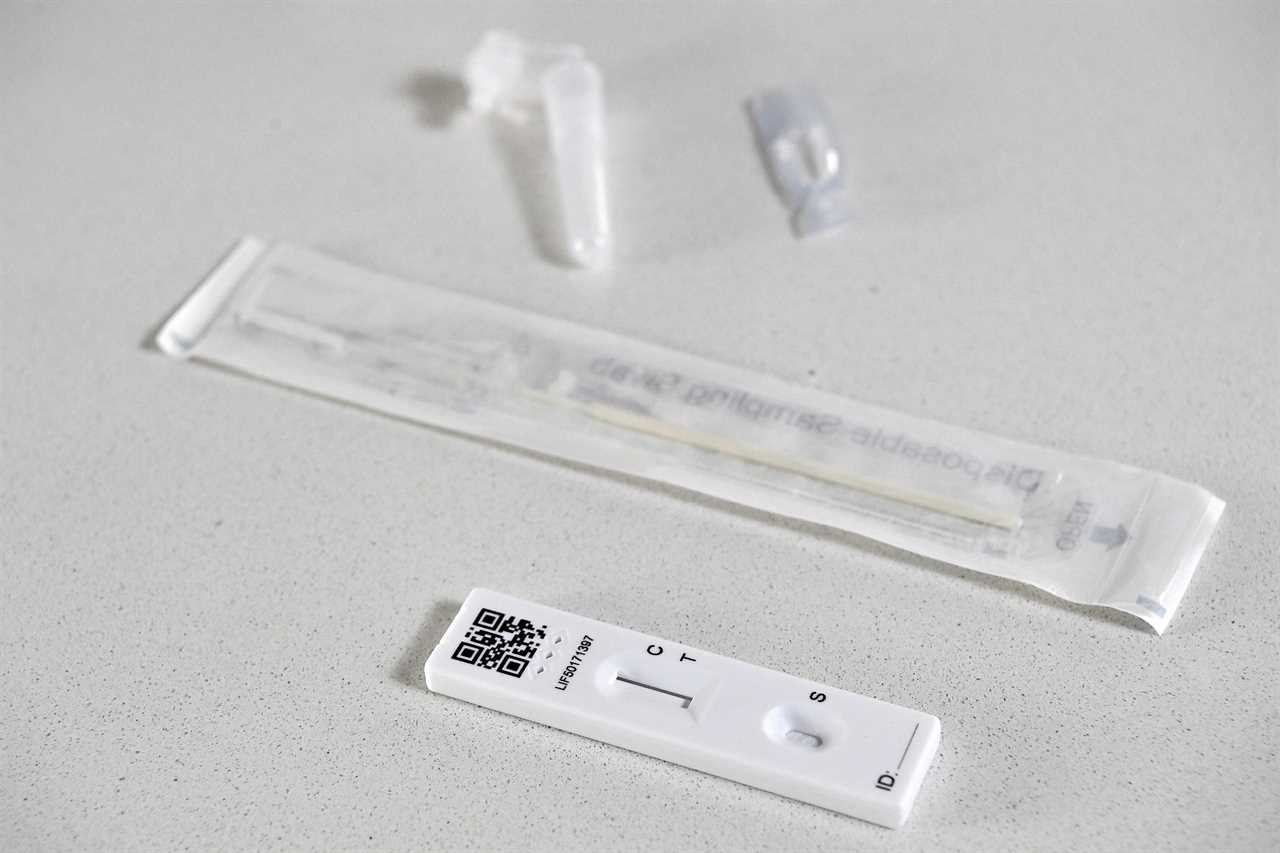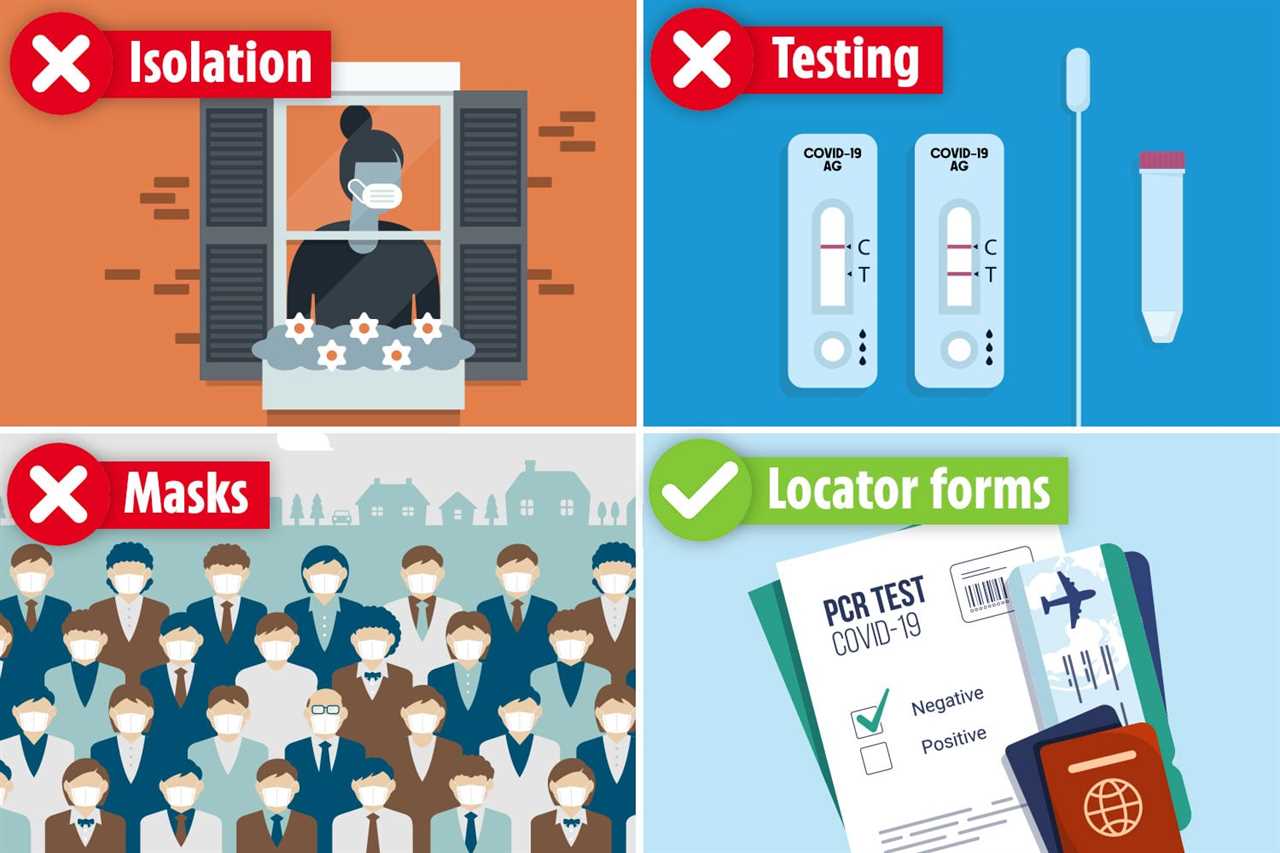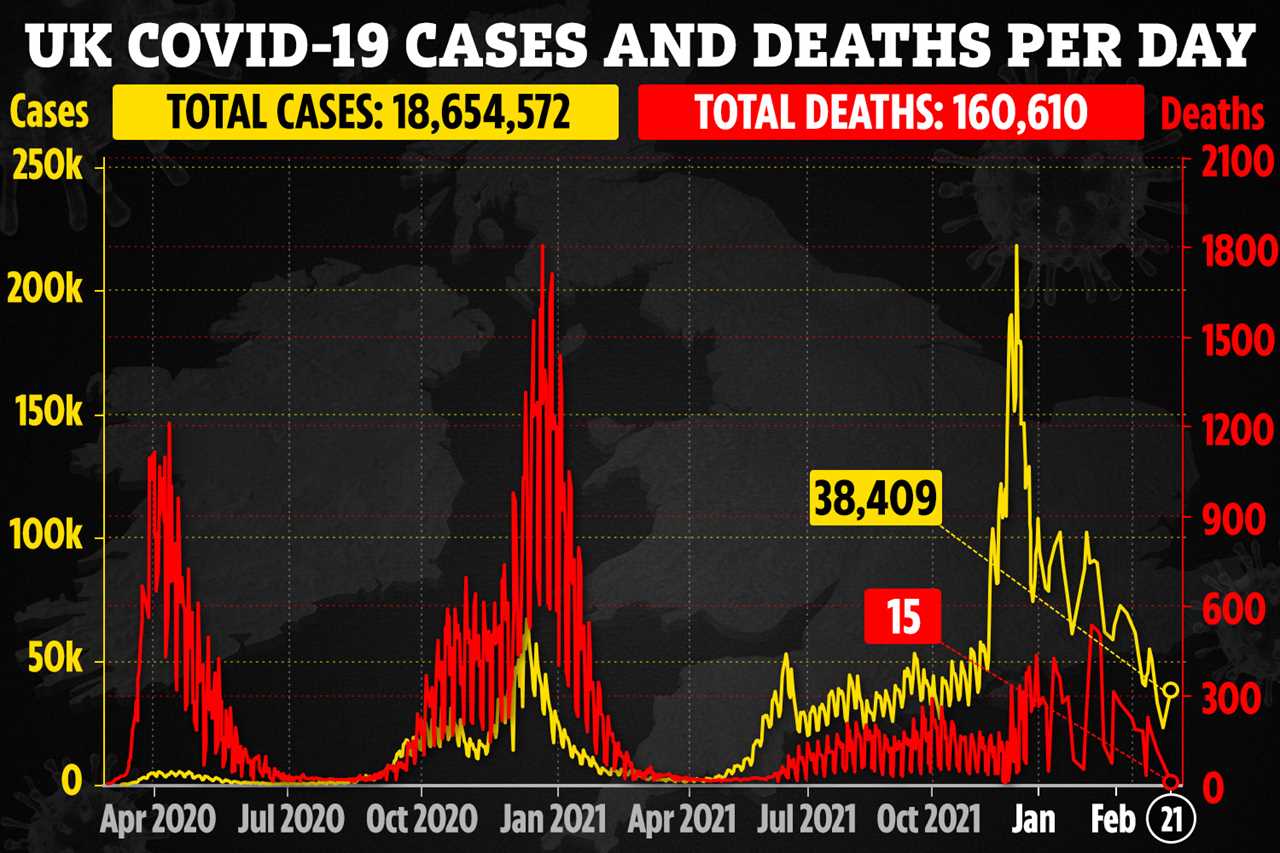BORIS Johnson has revealed his plan for Brits to live with Covid today.
The Prime Minister ripped up the virus rulebook, marking an end to this phase in the pandemic.


He outlined his vision for a freer Britain this afternoon, detailing fresh plans for isolation rules and testing.
Speaking to the House of Commons he first sent his best wishes to the Queen, who this weekend tested positive for Covid.
He added: “It is a reminder that this virus has not gone away, but because of the efforts made by this country over the past two years we can now deal with it in a very different way.
“So we move from government restrictions to personal responsibility.
“While the pandemic is not over we have now passed the peak of the Omicron wave. the link between infection and severe disease substantially weakened.”
TESTING
For people living in England free lateral flow tests will be scrapped on April 1, along with PCRs for people with symptoms.
The free tests will instead be limited to older people, those who are vulnerable to coronavirus and some key workers.
Anyone who gets Covid symptoms while in hospital or high-risk settings will also still be able to get tests.
PCR tests which were previously needed for travel could cost more than £100 privately, with lateral flows rumoured to cost around £30 for a pack of seven.
Currently Brits can order lateral flow tests for free, and go to walk-in PCR testing centres if they have symptoms.
But under cost-cutting measures, these services are set to be watered down in just over five weeks, with kits ordered and paid for online.
It means Brits will need to either buy a test, or rely instead on cautionary behaviour if they think they are ill.
The onus will be put on the general public to try not to spread the bug to the more vulnerable.
Omicron is milder and as restrictions fizzle out, we can move to this new phase.
But case numbers are still high, with thousands of Brits catching the bug every day.
And for some people it won’t be a mild illness – especially if they aren’t fully protected with vaccines – so even if it is mild for you, you risk passing it on to someone who might suffer more.
That’s why it’s important to make sure you have got your booster shot – as it is the best way to keep symptoms mild if you catch it, and ensures you are less likely to spread it.
ISOLATION
As part of the new plans for people living in England, Thursday has been earmarked for the scrapping of self-isolation rules.
This means Brits won’t be legally forced to isolate if they have the virus, although No 10 said efforts should be made not to spread the bug and be responsible.
Mr Johnson hailed scrapping the last remaining restrictions as a “moment of pride” for the nation.
But he also urged Brits to take responsibility for their own health rather than follow state diktats.
The PM said: “We will encourage people with Covid-19 symptoms to enact personal responsibility, in the same way we would with flu.
“We don’t need laws to compel people to be considerate to others – we can rely on that sense of responsibility for others.
“Let us learn to live with this virus and continue protecting yourself and others, without restricting our freedoms.”

No10 added: “We’re not saying isolation is pointless. We’d expect anyone with an infectious disease to take steps not to spread that disease further – a colleague at work with flu, for example.”
The changes mean fines for non-compliance with quarantine rules of up to £10,000 will cease to be enforceable.
It also means an end to a £500 payment to poorer workers needing to isolate, on March 24.
Scrapping self-isolation regulations also means millions of kids will be free to stay in school rather than be sent home because of symptoms that are usually cold-like.
Currently anyone with the virus must isolate for at least five full days.
If you return two negative lateral flow swabs on days five and six you can then leave isolation early.
The isolation period has previously been 14 days, ten days and seven days.






